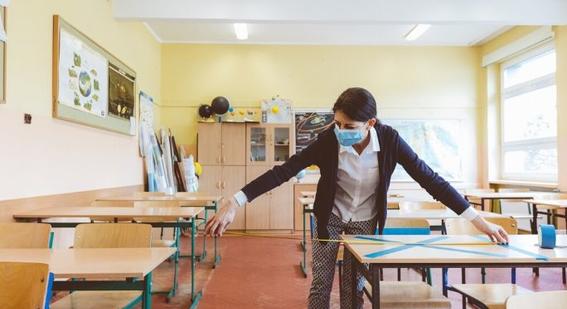Shock to the System: lessons learned from COVID-19
In April, during the first wave of lockdowns around the world, we partnered with EDUCATE Ventures to understand the ways in which the crisis affected teaching and learning.

National, regional, and local lockdowns throughout 2020 resulted in the most significant peacetime disruption to children’s education in living memory. In our report, Shock to the system: lessons from Covid-19, we draw from a vast array of voices that contribute to all parts of the education ecosystem to examine its integrity and its ability to support itself throughout the challenges of the global pandemic. This report includes policy recommendations and practical guidelines to support all key communities of the education ecosystem – teachers, leaders, parents, policymakers, researchers, governments – and the EdTech community that has provided a vital lifeline throughout this crisis. While we have focused on evidence from
the UK and the English education system, the findings and recommendations will resonate with educational stakeholders across many different countries that are facing similar challenges.
Supporting the ecosystem
EDUCATE’s ‘Golden Triangle’ of EdTech, academia and education, demonstrates how strong and supportive connections lie at the heart of the future of education.
Not all members of the education ecosystem experienced and dealt with the pandemic disruption in the same way. We identified five distinct personas for whom different recommendations and support needs to be provided:
- Aeronauts, who embrace EdTech and are likely to want to be fully informed about EdTech so they can build their strategy on evidence-based pedagogies.
- Earth Movers, who are likely to benefit from some mentoring from more able colleagues and be shown the value that technology can bring to education.
- Fire Tamers, who are ready for a substantial intervention to help them build an initial technology and skills infrastructure. We would guide them through a technology strategy step-by-step.
- Water Pilots, who are keen to develop their professional expertise, but lack confidence. They would benefit from further training to broaden their repertoire and grow their skillset.
- Space Seekers, who care deeply about wellbeing and worry about students falling behind, work–life balance, and confusing messages from the government. Lacking confidence and not feeling supported, this community would need a gentle approach that helps build their confidence and leadership skills.
The recommendations
Our key findings were that too little attention was given to the education ecosystem in its entirety and that effective connections are vital to supporting the education ecosystem. Our policy recommendations to connect and diversify support include:
- place the emphasis on the entire education ecosystem, as opposed to its constituent parts;
- address the urgent need for better communication and connection between and within the different communities that make up the English education ecosystem;
- improve government communications with the education ecosystem;
- provide both practical short-term support and a long-term vision;
- question the reliance on attendance as a proxy for education and learning.
From March to July 2020, the educational ecosystem endured a huge shock. Schools quickly transformed under circumstances of great uncertainty, often without having the appropriate infrastructure or support… There was no going back, and the magnitude of the consequences of Covid-19 was an accelerator for change. The early months of 2021 will need to see a gathering of communities, and discussion about building a longerterm vision for a resilient education ecosystem that supports the diverse set of stakeholder needs.




